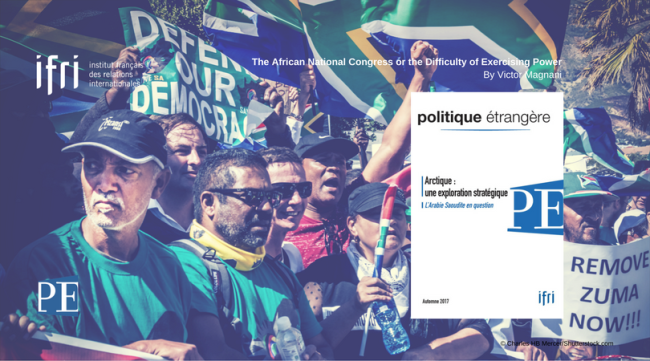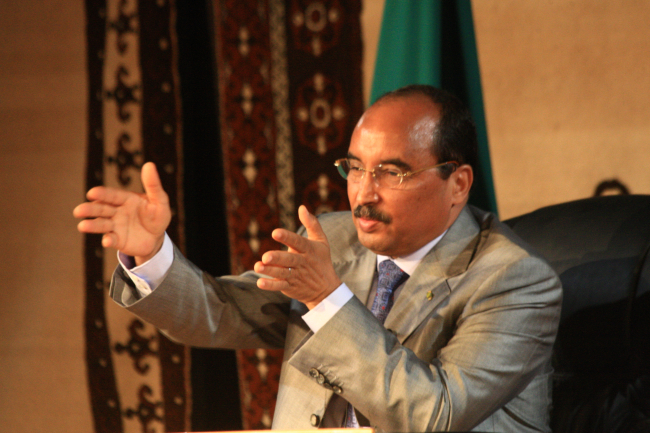The African National Congress or the Difficulty of Exercising Power
The African National Congress (ANC), which has governed South Africa since the end of apartheid, is in decline.
The faded star of President Mohamed Ould Abdel Aziz
The Mauritanian President, Mohamed Ould Abdel Aziz, was elected in 2009. The architect of two successful coups: in 2005 against President Maaouya Ould Sid’Ahmed Taya, and in 2008 against President Sidi Ould Cheikh Abdellahi, nowadays he is in his second and last term of office according to the Mauritanian constitution. He is viewed by the country's partners as one of the key figures in the stability of the Sahel. However, the international community does not see, or pretends not to see, the weakening of his regime.
DRC : Fluid Mechanisms. Political Reorganization Just Before the 2016 Elections
The Democratic Republic of Congo (DRC) is currently at a key moment in its political history. Careful observation of the changes in the Congolese political landscape is necessary to grasp the nuances, challenges and opportunities, with regard to a peaceful political changeover which is a condition for lasting peace.
The Election of Mmusi Maimane as Leader of the Democratic Alliance: a New Era for the Opposition in South Africa
At the end of the Democratic Alliance (DA)’s federal congress held in Port Elizabeth on Sunday 10th May 2015, Helen Zille was replaced by Mmusi Maimane after eight years as leader of South Africa’s largest opposition party. This passing of the baton had a significant impact both nationally and internationally because of the colour of Mmusi Maimane’s skin: for the first time, the party will actually be led by a black man. More than 20 years after the end of apartheid it may seem surprising that this event has excited people’s curiosity and interest, but it demonstrates that until now South African politics have often been polarized along race lines.
Nigeria's 2015 Presidential Election: Deciphering a High-risk Operation
Nigeria is entering a new electoral cycle, holding its sixth general elections since the restoration of civilian rule in 1999. The elections were initially scheduled for February 14 (presidential elections) and 28 (governorship elections), 2015. The first round has now been postponed until March 28. The issue of the threat posed to Nigeria by Boko Haram is not, as one might expect, at the heart of the debate surrounding the presidential campaign in the country. Nevertheless, the peculiar security context in which the forthcoming elections will take place, as well as the changes under way in Nigeria's political landscape, make this vote unique. It is therefore essential to analyze the various issues at stake in the country's sixth general elections.


The Election of Mmusi Maimane as Leader of the Democratic Alliance: a New Era for the Opposition in South Africa
At the end of the Democratic Alliance (DA)’s federal congress held in Port Elizabeth on Sunday 10th May 2015, Helen Zille was replaced by Mmusi Maimane after eight years as leader of South Africa’s largest opposition party. This passing of the baton had a significant impact both nationally and internationally because of the colour of Mmusi Maimane’s skin: for the first time, the party will actually be led by a black man. More than 20 years after the end of apartheid it may seem surprising that this event has excited people’s curiosity and interest, but it demonstrates that until now South African politics have often been polarized along race lines.


Support independent French research
Ifri, a foundation recognized as being of public utility, relies largely on private donors – companies and individuals – to guarantee its sustainability and intellectual independence. Through their funding, donors help maintain the Institute's position among the world's leading think tanks. By benefiting from an internationally recognized network and expertise, donors refine their understanding of geopolitical risk and its consequences on global politics and the economy. In 2025, Ifri supports more than 80 French and foreign companies and organizations.










